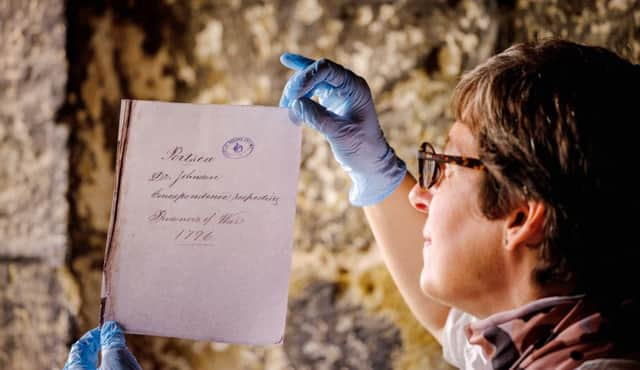Portchester Castle prisoners' identities are finally revealed


English Heritage has been researching the identities of more than 2,000 African-Caribbean soldiers that were imprisoned at Portchester Castle in the 18th century.
The charity announced the exhibition after curator Abigail Coppins and her team spent years trying to uncover the names.
Advertisement
Hide AdAdvertisement
Hide AdAbigail said: ‘To discover the identities of 2,000 African-Caribbean prisoners-of-war, imprisoned in Portchester Castle was quite astonishing. At a time when the entire black population of Britain was roughly 10-15,000 our exhibition completely turns the tables on the views of the period.
‘These were not slaves but free men and women, fighting and in some cases dying for a cause they believed in.
‘Research is on-going but these names and this exhibition restores a forgotten chapter of black history to England’s history.’
Among the prisoners and officers, Abigail found Captain Louis Delgres, an experienced and highly-regarded officer who had fought against Britian many times, General Marinier, Commander in Chief of the French forces on St Lucia, and his wife Eulalie Piemont and Charlotte Pedre and her husband, Jean-Louis Marin Pedre.
Advertisement
Hide AdAdvertisement
Hide AdHe was Commander of the Caribs, the indigenous people of the Caribbean.
Letters from those stationed at the castle provides an insight in to how these soldiers came to be at Portchester and what life was like in the castle.
In addition, the exhibit sheds light on another group of mainland French prisoners who created a theatre and put on original plays.
Katherine Astbury, reader in French studies at the University of Warwick, said: ‘Amazingly the manuscript of a three-act melodrama written and performed by some of the French prisoners has survived and it gives us unique insight into the hopes and fears of those held at Portchester.
Advertisement
Hide AdAdvertisement
Hide Ad‘Over the last four years my research team has been exploring the complex interplay of aesthetics and politics in French theatre during the Napoleonic period. A public performance of one of the prisoners’ plays is the logical conclusion to the project.’
The exhibition is open daily from July 20 at Portchester Castle.
For more information visit english-heritage.org.uk/portchester.